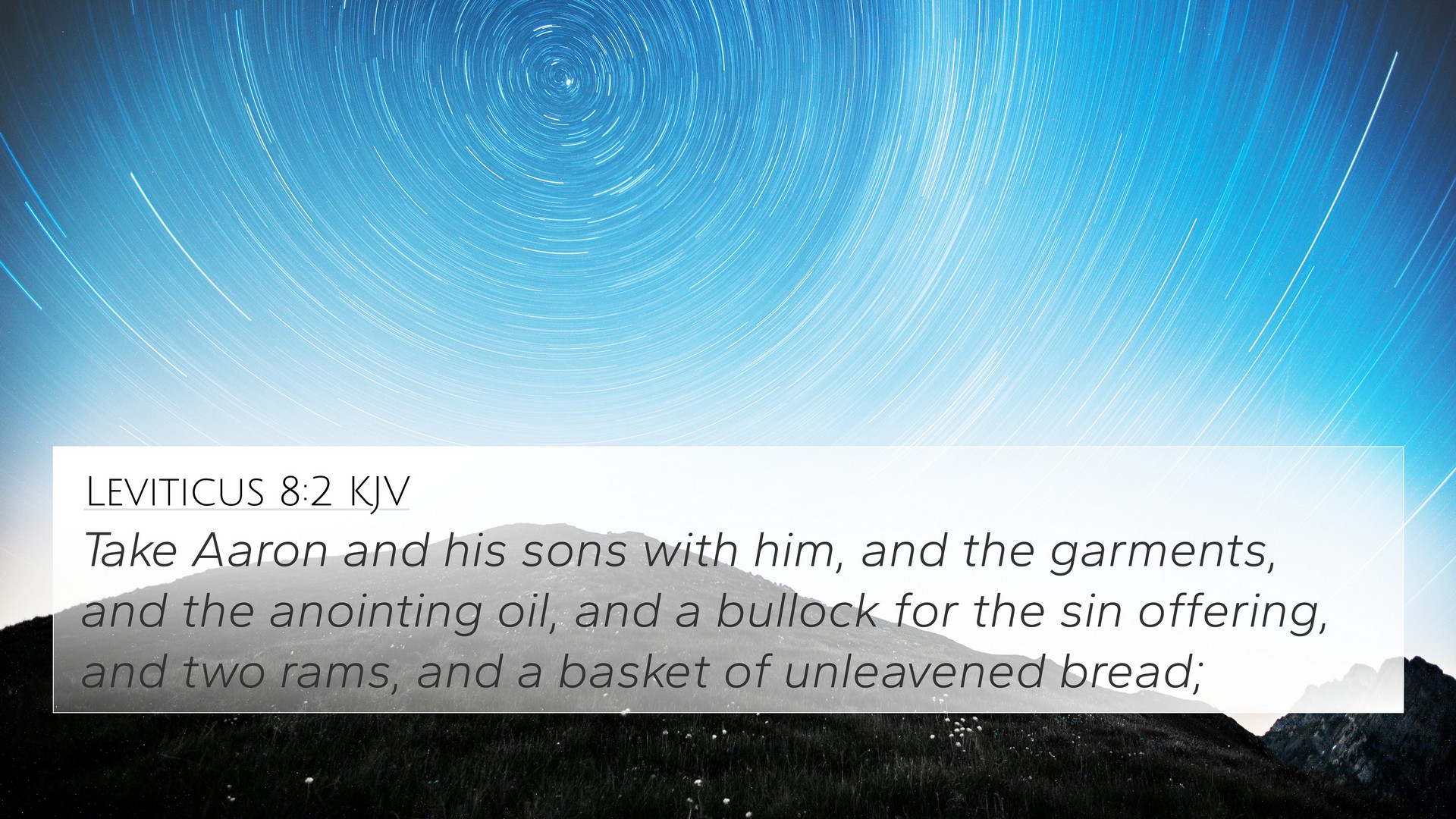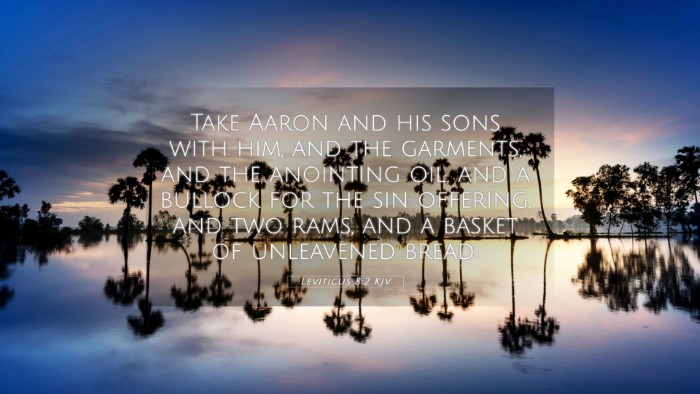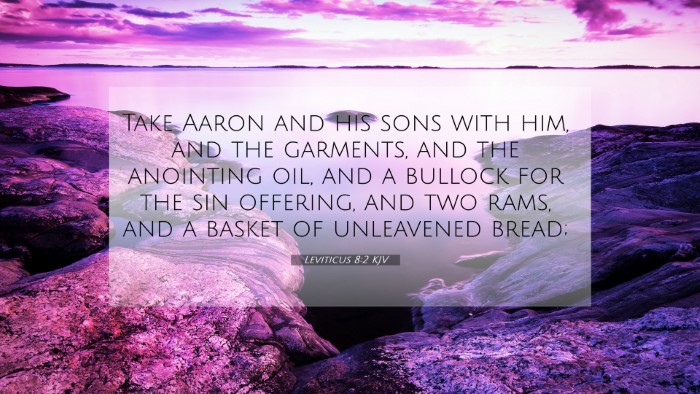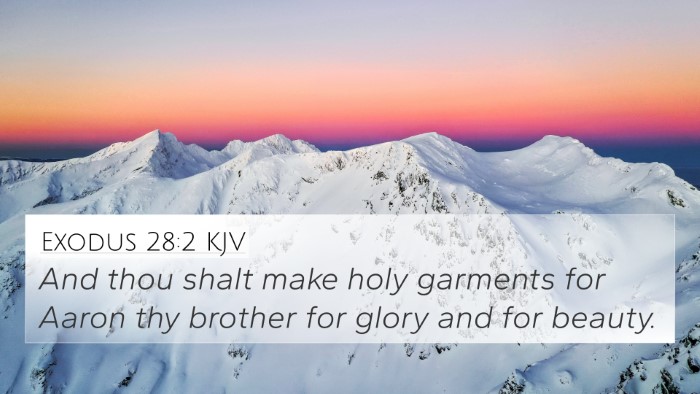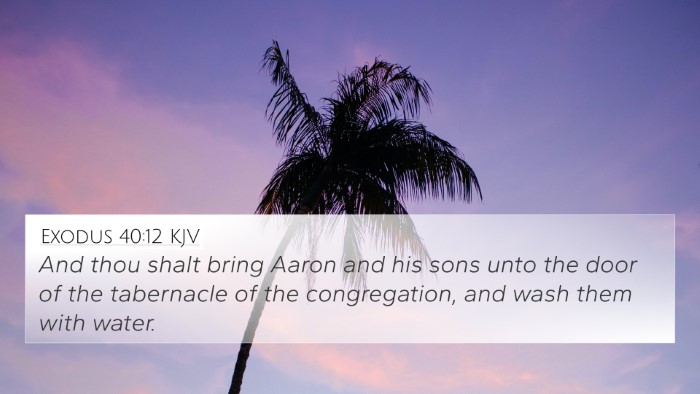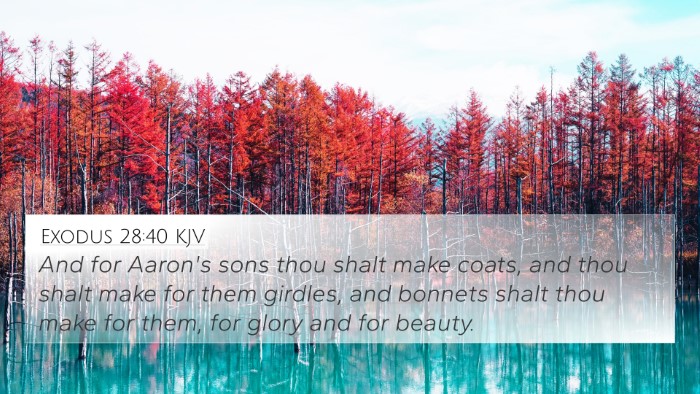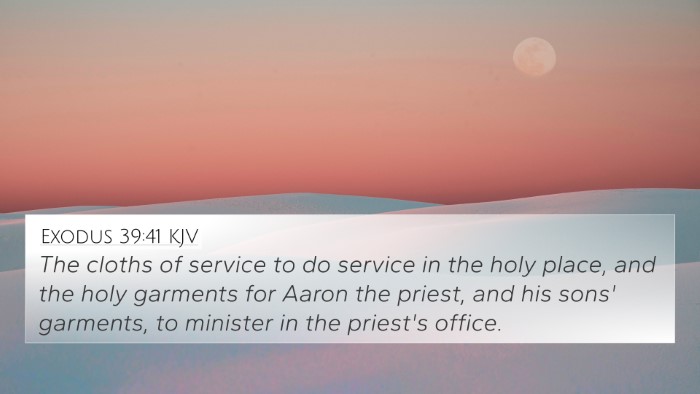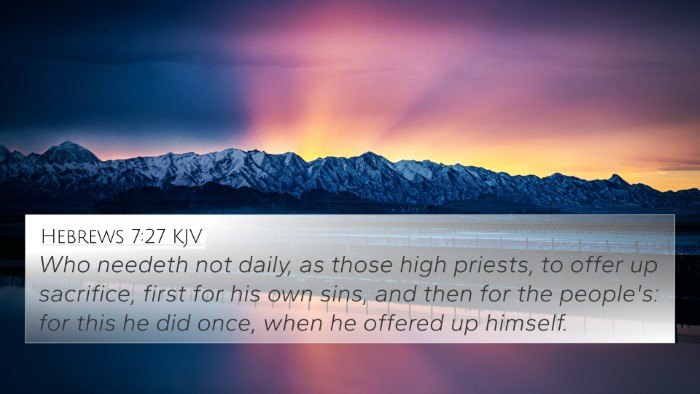Understanding Leviticus 8:2
Leviticus 8:2 (KJV): "Take Aaron and his sons with him, and the garments, and the anointing oil, and a bullock for the sin offering, and two rams, and a basket of unleavened bread."
This verse marks a pivotal moment in the establishment of the priesthood in Israel. It highlights the specific instructions given to Moses for the consecration of Aaron and his sons as priests to serve before God. The details outlined in this verse not only reflect the gravity of the calling but also the meticulous nature of the ceremonial practices involved.
Key Themes and Meanings
- The Role of Priesthood: The priesthood serves as mediators between God and the people. Aaron, chosen by God, represents the family that would lead Israel in worship and sacrificial rituals.
- Consecration Through Ritual: The garments and anointing oil signify both the holiness of the office and the empowerment of the priests by God's Spirit.
- Sacrifice for Atonement: The inclusion of offerings, especially the bullock for sin, underscores the need for atonement for sin before one can approach God.
- The Importance of Obedience: Moses’ obedience in following God's specific instructions sets a precedent for future leaders in Israel.
Cross-References
Leviticus 8:2 connects to several other biblical passages that support its themes and concepts:
- Exodus 28:1: God's calling of Aaron and his sons to serve as priests.
- Exodus 40:12-15: Instructions for the consecration of priests.
- Hebrews 5:4: The priesthood is not assumed by individuals but appointed by God.
- 1 Peter 2:9: Believers are a royal priesthood, paralleling Old Testament themes.
- Leviticus 4:3: The significance of sin offerings for the priest.
- Numbers 3:10: The role of the Levites and priests specifically in Israel.
- Psalm 133:2: The anointing oil functioning as a symbol of unity and sanctification.
- Romans 12:1: The call to offer our bodies as living sacrifices parallels sacrificial themes.
- James 5:14: Anointing as a practice for healing reflects the significance of oil.
- Matthew 26:26-28: The New Testament depiction of sacrifice through Christ establishing the new covenant.
Insights from Public Domain Commentaries
This section blends insights from Matthew Henry, Albert Barnes, and Adam Clarke to deepen the understanding of Leviticus 8:2:
Matthew Henry
Henry emphasizes the solemnity of the consecration process, indicating that it is not a casual appointment but a sacred duty. The act symbolizes the importance of being set apart for divine service, reinforcing the concept that God requires holiness from those who serve Him.
Albert Barnes
Barnes notes the significance of the materials used in the consecration ceremony, observing that each item—the garments, the oil, and the offerings—holds meaning in asserting the priests' sanctity. This underscores a broader theological principle of God's call requiring preparation and reverence.
Adam Clarke
Clarke points out that the details reflect an organized system of worship that God designed for the Israelites. He highlights how the instructions communicate the seriousness of sin and the need for atonement through ritual sacrifices, linking this to the ultimate sacrifice Christ would fulfill.
Thematic Connections and Summary
Finding connections between Leviticus 8:2 and broader biblical narratives demonstrates the continuous thread of God's plan for redemption through sacrifice:
- The Role of Sacrifice: From the sacrificial system in Leviticus to Christ's sacrifice, the theme of atonement pervades scripture.
- God's Holiness and Human Response: Understanding the divine requirement for holiness in worship helps believers appreciate the depth of grace offered through Christ.
- Leadership and Responsibility: The model of the priesthood serves as a guide for Christian leaders today, stressing accountability and service.
Tools for Bible Cross-Referencing
For those examining the connections and meanings of this verse, various tools for Bible cross-referencing can be employed:
- Bible Concordance: A comprehensive listing of terms and where they occur throughout the Bible.
- Bible Cross-reference Guide: A resource for finding related verses and themes.
- Cross-reference Bible Study: Methods for studying scripture that identify interconnections.
- Bible Chain References: A method to follow thematic chains through different scriptures.
In conclusion, Leviticus 8:2 is a foundational verse that sets forth the principles of the priesthood, the significance of anointing and sacrifice, and invites comparative analysis with related scriptures, thus enriching our understanding of God's call to holiness and service.
